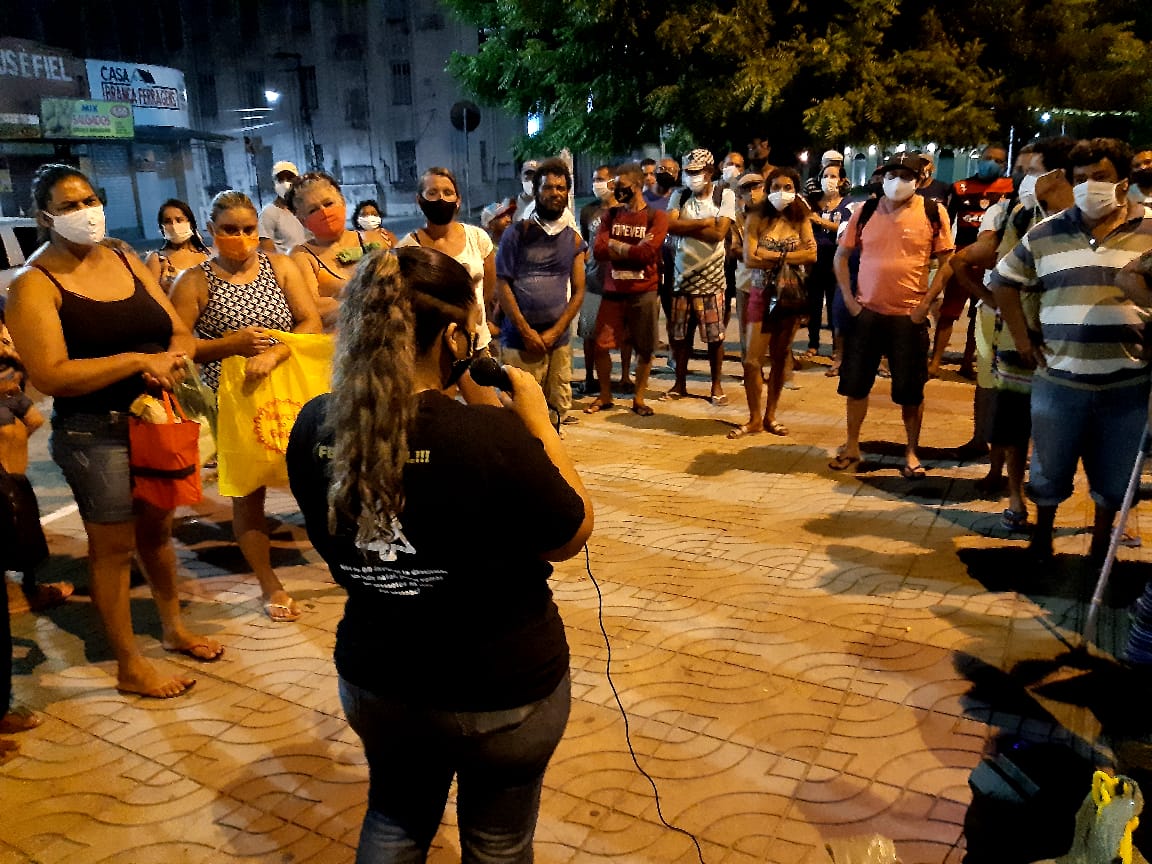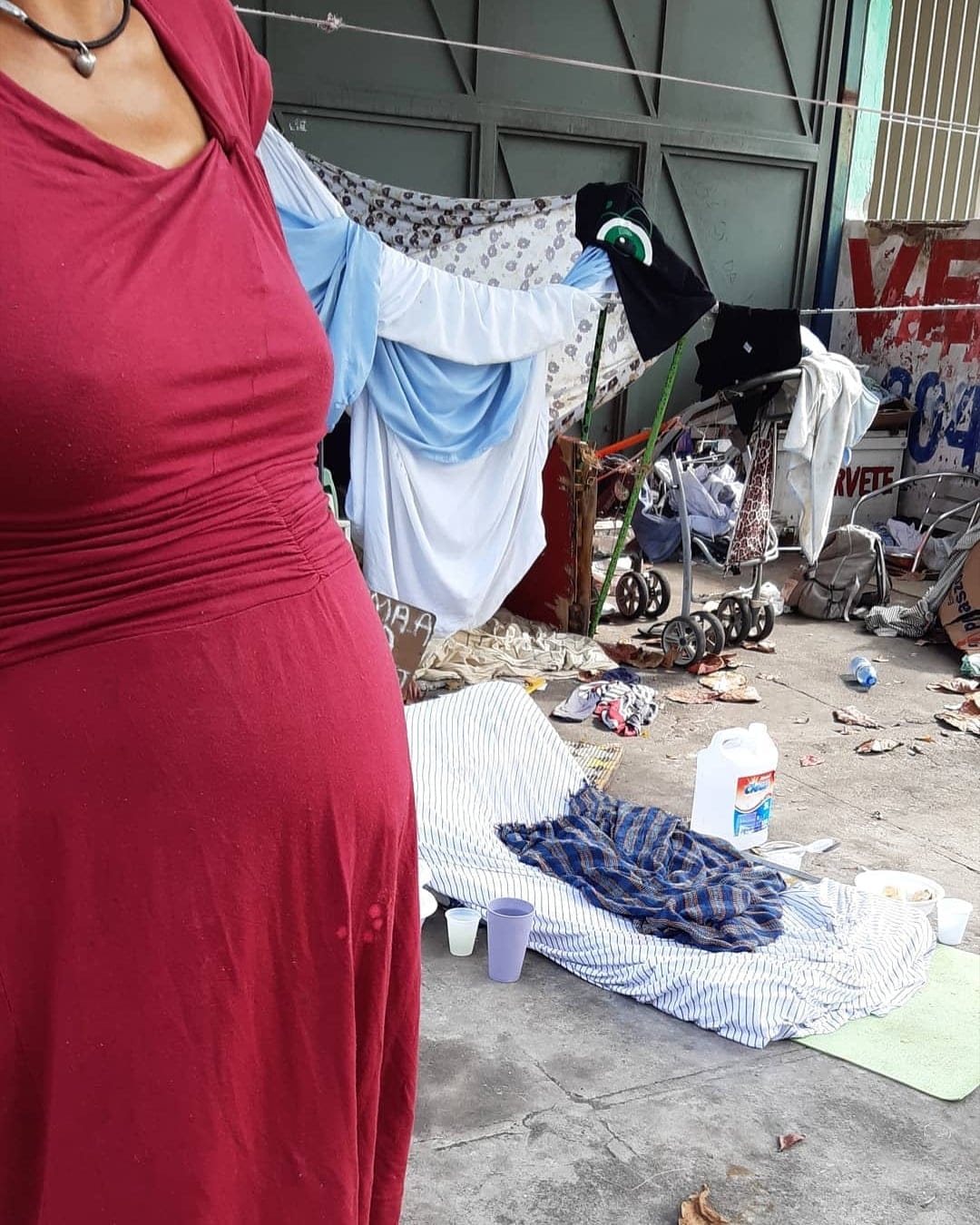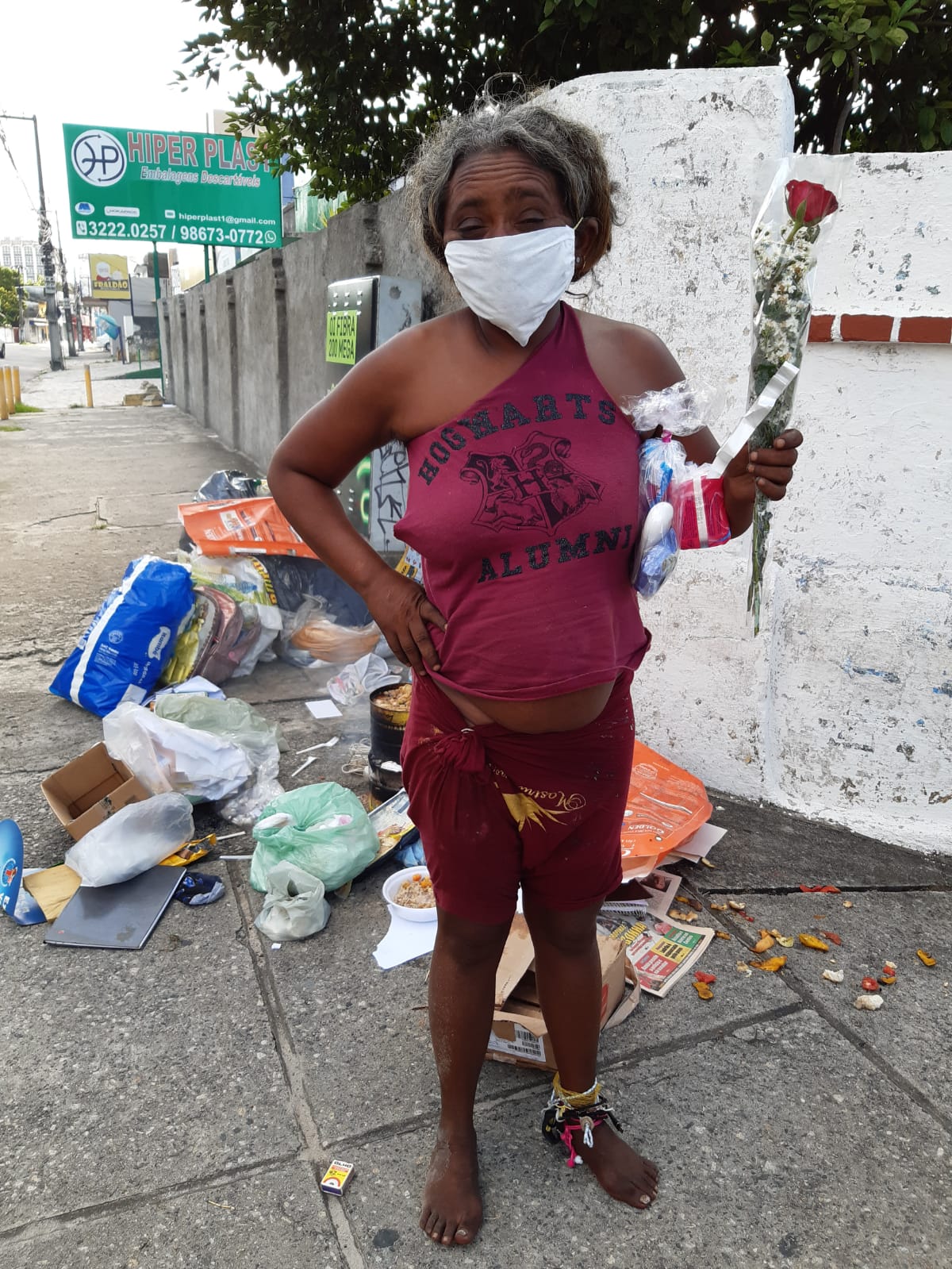Menstrual poverty is fought by those who lived on the streets of João Pessoa
Project in the capital of Paraíba serves people in menstrual poverty who live on the streets of the city


Credit: Disclosure
By: Renato Silva / Lupa do Bem – Favela em Pauta
Founded in 2018 by visual artist Fany Miranda, the Invisible Jampa project serves the homeless population, offering personal hygiene kits, blankets and, above all, affective listening.
Fany, who has already lived through the same situation that is the reality of the people assisted by the project today, says that having lived through this scenario was decisive to create the project. “I used to be that person on the streets in my own city, however, at the time I didn’t talk to the people who lived in my cycle. And, when I got my job, I started to study and got interested in taking food to those who were on the street, bottles of mineral water and sanitary pads”, comments the artist.

During much of the pandemic, the project brought together, on Sundays, volunteers who distributed to the homeless about 100 lunches with mineral water or juice, in addition to hygiene kits, containing absorbents, soap, clothes, toothpaste and toothbrush. tooth.
Today, the project leader says that, with the almost total reduction in donations, the focus has been on maintaining the donation of personal hygiene kits, with a focus on people experiencing menstrual poverty and on affective listening meetings, which come to last several hours.
But what, in fact, is menstrual poverty?
This term is used to characterize the lack of access to resources, infrastructure and even knowledge involving menstruation itself. In May 2021, the United Nations Population Fund (UNFPA) and the United Nations Children’s Fund (UNICEF) released a report that draws attention to the menstrual reality experienced by many women who do not have access to a condition worthy of care. dealing with menstruation in Brazil.
According to the study “Menstrual Poverty in Brazil: Inequality and Violations of Rights” developed by the organizations, 713,000 young people live without access to a toilet or shower in their homes, and more than 4 million do not have access to minimum items of menstrual care in their homes. schools.


Among the conditions that make the lives of these people difficult, other basic services essential to guarantee menstrual dignity are also neglected: according to the report, 900,000 do not have access to piped water at home, and 6.5 million live in homes without connection to the network. of sewer.
According to the UNFPA representative in Brazil, Astrid Bant, the absence of minimum sanitary conditions for people to be able to manage their menstruation is a violation of human rights and a condition that keeps the country from achieving the Sustainable Development Goals (SDGs), as SDG 3, related to health and well-being.
“Menstruation is a perfectly natural condition that should be taken more seriously by public authorities and health policies. When we do not allow a girl to go through this period properly, we are violating her dignity,” says the representative.
Dealing with menstrual poverty
The founder of the project says that the situation of those assisted by the project goes through several problems, which often come from birth. “Many are already born to women who are on the streets, and who have not had any follow-up. These girls grow up, many times the mothers are imprisoned or murdered (most often by partners), and the girls go on with their lives being abused without even realizing it”, she comments.


Fany reports that among the people assisted by Jampa Invisível, there are many dreamers, to whom the project devotes even more attention, since, according to her, “we cannot lose these [people].
The founder concludes by stating that taking care of menstrual poverty is the first step towards the dignity and individual growth of these women. “The menstrual issue is a real health problem, because as they do not have access to the absorbent, they use cardboard, plastic bags, tear their own clothes to put rags. Menstrual dignity is everything,” she concludes.
To follow the performance of the project, just follow the profile of Jampa Invisível on Instagram, or through the links available here.


